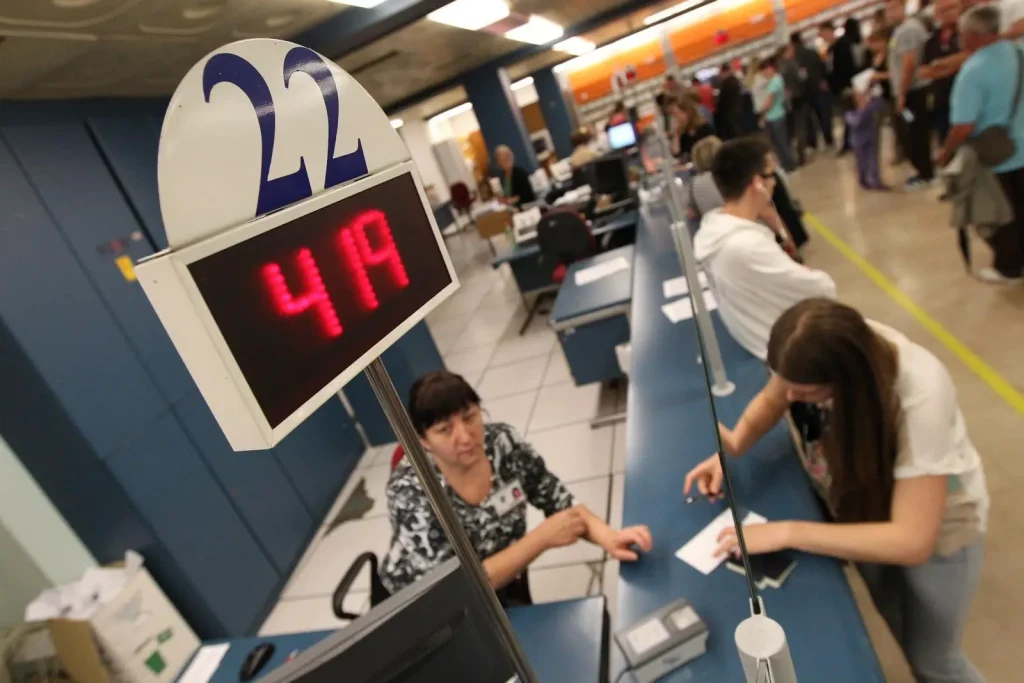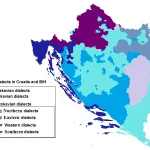Is there a difference between the Croatian EU Blue Card (plava karta) and a normal residence/stay and work permit?
Although they both allow the holder the ability to work and take up lawful residence, there are differences between the two.
If you’re a highly qualified third country national and you fit the bill, you can apply for the Croatian EU Blue Card. You’ll need to fill in form 4A (downloadable) either at the administrative police station responsible for their planned place of residence here in Croatia, or at a Croatian diplomatic mission abroad. There is, as touched on above, a difference between the Croatian EU Blue Card and a normal residence or stay and work permit, and that difference lies in some of the criteria a prospective blue card holder needs to meet.
What does one need in order to apply for a Croatian EU Blue Card?
Unlike for the issuance of a residence permit (which is all an EEA citizen needs as they’re free to work) or a stay and work permit for non-EEA citizens, the issuance of a Croatian EU Blue Card has some differences. Would-be Croatian EU Blue Card holders still need to meet the general requirements asked of other individuals applying for residence in Croatia, and they’re all outlined in Article 59 of the Law on Foreigners (Zakon o strancima), but you’ll also need to provide the following:
Proof that you meet all of the conditions the legislation of the Republic of Croatia asks of them in order to properly engage in a legally regulated profession. The details of that profession must be fully and clearly stipulated in your employment contract, and it all must correspond with the Croatian legislation on professional qualifications.
As made obvious above, you’ll need to show proof of your employment contract for said highly qualified work position. The employment contract cannot be for a period shorter than twelve calender months (one year), and the issuer of the employment contract must have their company registered in Croatia.
You’ll also need to prove your level of education (higher) from your home country or the country in which you gained said education. This can be done with your degree(s) diploma(s), certificate(s) and so on.
What are the costs?
There are admin fees implied with all processes undertaken at MUP (the Interior Ministry), and they vary. In the case of the application for and the issuance of a Croatian EU Blue Card, you will need to pay just under 75 euros for the issuance of the status/permit, and then just under 32 euros on top of that, for the issuance of the actual physical card (which comes in the form of a biometric residence permit/ID card).
Please note that the aforementioned sum of just under 32 euros is for the issuance of the biometric card in what’s called a ”regular procedure” (that just means that it will take the usual amount of time to be made). You can pay more, more precisely just under 60 euros for the card to be issued to you in an ”accelerated procedure”, and you’ll get it more quickly.
On top of that, you’ll need to pay just under 10 euros to the state budget.
Payment details are specified here.
Can Croatian EU Blue Cards be renewed?
Yes. As long as you as the holder start the process at the same administrative police station which issued you the blue card no later than 30 days before it is due to expire. You’re free to remain in Croatia until a decision on renewing the card is made and becomes legally enforceable.
Can my family members join me, even if they aren’t blue card holders or even applicants?
Yes! Your family members are free to join you using something called family reunification. Your family member simply needs to meet the requirements laid out in Article 64 of the Law on Foreigners in order to be granted temporary residence on the basis of family reunification with a Croatian EU Blue Card holder. They’ll still need to provide some things to MUP, so here’s a list:
They’ll need to fill in form 1A.
They’ll then need to provide: a photo of themselves, a copy of their valid passport, a residence permit to prove that they resided in the territory of another EEA member state as family members or life partners, a visa (if applicable at all), proof of them holding health insurance, proof of sufficient funds in order to not become a burden on the welfare system, proof that they haven’t been convicted of any criminal offences in the country they resided in for more than 12 months immediately prior to arriving in Croatia.
There are other things to note and items to provide the Croatian authorities with based on who you are to each other in the sense of being family. This varies if the relationship is a parent/child relationship, if your husband or wife is in question, if you’re not married but are in a commonlaw partnership, an informal life partnership, and so on.
Those more specific details can be found here.
Caveats
As a Croatian EU Blue Card holder, you may only work for the company (registered in Croatia) for which the blue card has been issued for, and for the length of time it has been issued for. In other words, you’re only permitted to work for the employer that you have entered into employment with and been granted a blue card for.
Your family members will be granted temporary residence on the basis of family reunification only for the amount of time your blue card has been issued for. The same is true for the renewal process.
For more on moving to and living in Croatia, spanning everything from rental car and ferry tips to getting health insurance and buying property, make sure to keep up with our lifestyle section. An article on living in, moving to or handling administrative tasks in Croatia is published every Wednesday.











